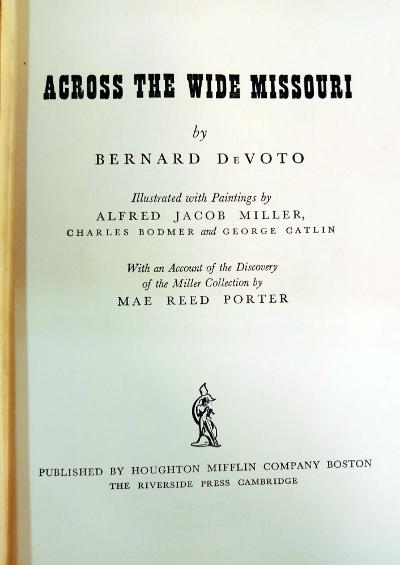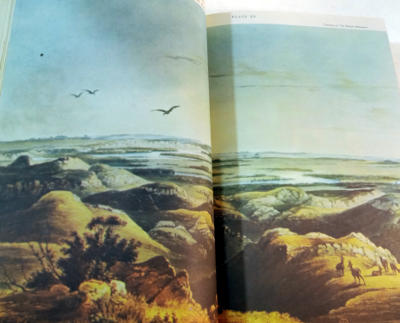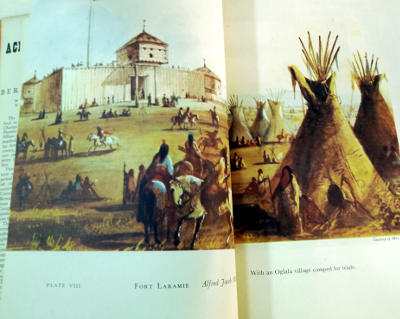About the book (from Wikipedia):
Across the Wide Missouri is a history of the Rocky Mountain fur trade in the American West in the Upper Missouri River basin during its peak in the 1830s. It focuses on the Rocky Mountain Fur Company, which competed with John Jacob Astor’s American Fur Company and the British Hudson’s Bay Company by setting up an annual summer trade rendezvous supplied by overland wagon train in a different mountain valley every year instead of using fixed trading posts. The chronology is sometimes confusing, but the book contains a lively if somewhat romanticized portrayal of the way of life of the individual trappers known as Mountain Men, who were the RMFC’s main suppliers and customers, with less attention given to the organized “brigades” of American Fur. There is a lot about the economics of the trade, including the inability of many free trappers to get out of debt to the fur companies who both bought their furs and sold them their supplies. There is also a certain amount of political intrigue between the US and Britain over eventual ownership of Oregon, which was still outside the United States.
DeVoto’s opinions on the cultures of the various Native American tribes and their relations with the Mountain Men (for example that the Blackfeet are always belligerent and the Crow do everything better than all the other Plains peoples) might not meet current standards of politeness but are nonetheless interesting. He portrays without comment the trappers’ attitudes toward race and gender that most certainly do not meet modern standards, including the fact that a Native American wife to make camp and process pelts was a practical necessity for the independent trapper that could be acquired by purchase from her family.
DeVoto points out that the RMFC pioneered overland wagon transport across the Great Plains, and that the knowledge of the interior West gained by the Mountain Men played an essential role in the overland migrations to California and Oregon in the 1840s, with many of the former trappers working as scouts and guides after the fur trade collapsed due to over-hunting of beaver and changes in fashion.





